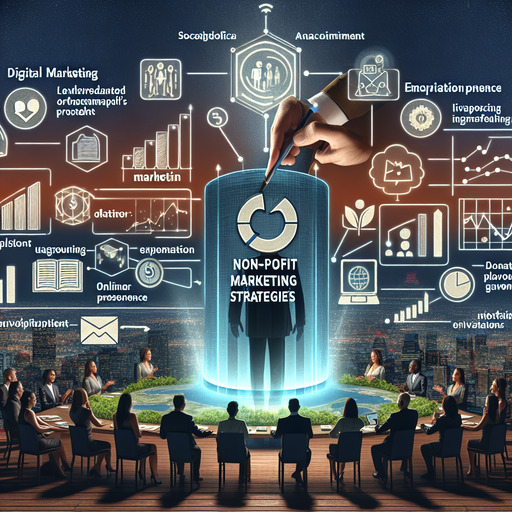
-
Table of Contents
- Effective Non-Profit Marketing Strategies: Engaging Donors and Amplifying Your Cause
- Understanding the Importance of Non-Profit Marketing
- 1. Building a Strong Non-Profit Brand
- 2. Leveraging Digital Marketing for Non-Profits
- 3. Enhancing Donor Engagement
- Conclusion: Amplifying Your Cause Through Strategic Marketing
- Questions and Answers
Effective Non-Profit Marketing Strategies: Engaging Donors and Amplifying Your Cause
In today’s competitive landscape, non-profit organizations must adopt innovative marketing strategies to stand out and effectively engage donors. With limited resources, non-profits need to be strategic in their approach to marketing, ensuring that every effort counts. This article explores actionable strategies for non-profit marketing, focusing on digital platforms, branding, and donor engagement.
Understanding the Importance of Non-Profit Marketing
Non-profit marketing is crucial for raising awareness, attracting donors, and promoting the organization’s mission. By leveraging effective marketing strategies, non-profits can amplify their cause and make a significant impact. Let’s delve into some key strategies that can help your organization thrive.
1. Building a Strong Non-Profit Brand
Your brand is the face of your organization. A strong brand communicates your mission, values, and the impact you aim to achieve. Here are some steps to build a compelling non-profit brand:
- Define Your Mission and Values: Clearly articulate what your organization stands for and the change you want to bring about.
- Create a Consistent Visual Identity: Use consistent colors, logos, and fonts across all platforms to enhance recognition.
- Tell Your Story: Share compelling stories that highlight the impact of your work and resonate with your audience.
For example, Charity: Water has successfully built a recognizable brand by consistently sharing stories of individuals who have benefited from their clean water projects.
2. Leveraging Digital Marketing for Non-Profits
Digital marketing offers cost-effective ways to reach a broader audience. Here are some strategies to consider:
- Social Media Engagement: Use platforms like Facebook, Instagram, and Twitter to engage with your audience, share updates, and promote fundraising campaigns.
- Email Marketing: Build a mailing list to keep supporters informed and engaged with personalized content and calls to action.
- SEO Optimization: Optimize your website for search engines to increase visibility and attract potential donors searching for causes like yours.
Consider the case of the ALS Association, which leveraged social media to launch the viral Ice Bucket Challenge, raising over $115 million for ALS research.
3. Enhancing Donor Engagement
Engaging donors is essential for building long-term relationships and ensuring continued support. Here are some effective strategies:
- Personalized Communication: Address donors by name and tailor messages to their interests and past contributions.
- Show Impact: Regularly update donors on how their contributions are making a difference, using stories, photos, and videos.
- Offer Recognition: Acknowledge donors publicly through newsletters, social media, or events to show appreciation for their support.
For instance, World Wildlife Fund (WWF) effectively engages donors by providing regular updates on conservation efforts and offering exclusive content to supporters.
Conclusion: Amplifying Your Cause Through Strategic Marketing
By implementing these non-profit marketing strategies, your organization can effectively engage donors, build a strong brand, and amplify your cause. Remember, the key is to be authentic, consistent, and transparent in your communications.
For further reading on non-profit marketing strategies, visit Wikipedia’s page on Nonprofit Organizations.
Questions and Answers
Q1: How can non-profits effectively use social media for marketing?
A1: Non-profits can use social media to engage with their audience by sharing impactful stories, promoting fundraising campaigns, and providing updates on their work. Consistent posting and interaction with followers are key to building a strong online presence.
Q2: What are some cost-effective digital marketing strategies for non-profits?
A2: Cost-effective strategies include leveraging social media platforms, utilizing email marketing to engage supporters, and optimizing the organization’s website for search engines to increase visibility.
Q3: Why is donor engagement important for non-profits?
A3: Donor engagement is crucial for building long-term relationships, ensuring continued support, and increasing donor retention. Engaged donors are more likely to contribute regularly and advocate for the organization’s cause.
If you’re interested in learning more about our services or have questions about this blog, please reach out to us via our contact page.